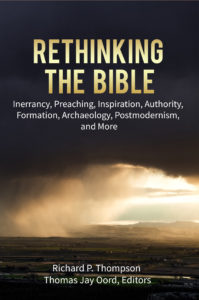A Wesleyan Approach to the Bible
If we took John Wesley’s use of the Bible as central to describing a Wesleyan doctrine of Scripture, what would we conclude? The answer to that question resides at the center of my living and thinking.
Randy Maddox on John Wesley
Perhaps the leading Wesleyan theologian of our time, Randy Maddox, explores John Wesley’s use and interpretation of the Bible. After addressing the kinds of issues one usually considers when exploring biblical hermeneutics, Maddox asks what makes Wesley’s distinctive.
Wesley appealed to a group of texts he thought most important for understanding the rest of Scripture. These are clearer than others, thought Wesley, acknowledging the ambiguity we encounter in some biblical passages. “There are some Scriptures,” says Wesley, “which more immediately commend themselves to every [person’s] conscience.” These passages provide what scholars call “the canon within the canon,” by which they mean the ideas by which we interpret the rest of Scripture.
What was Wesley’s canon within the canon? The First Epistle of John. Wesley called this little book “the deepest part of Scripture” and used it more often than any other book of the Bible. Wesley was unique in this emphasis, at least among his contemporaries.
Love is the Key
One passage in 1 John, said Wesley summed up “the whole gospel.” It says, “We love [God] because he first loved us” (4:19).
According to Wesley, this verse describes how we can respond when we realize God’s love pardons us. And the verse teaches that God’s love transforms so that we might love God and neighbor. We can love, because God’s love makes our love possible.
Wesley “read the whole of the Bible in light of a deep conviction that God was present in the assuring work of the Spirit,” concludes Randy Maddox, “both to pardon and to transform all who respond to that inviting and empowering love (and all can respond!).”
Wesley used the biblical themes of love to counter views of predestination that seemed to suggest God predestined only some for salvation. He responds to Romans 8:29–30, for instance, saying, “No Scripture can mean that God is not love, or that his mercy is not over all his works.” By this, he meant God seeks to save all persons and all creation.
The Key to Understanding
Wesley didn’t think he brought the interpretative centrality of love to the Bible, as if it were some foreign hermeneutical theme. He wasn’t imposing love on Scripture as an outside norm. Instead, he thought the themes of love were the center of the biblical message and the key to understanding the whole of Scripture.
I agree with John Wesley’s approach to the Bible. This hermeneutical move is central to my own Christian theological work on love. It motivates even me to criticize those aspects of the Bible that seem contrary to t he clear themes of love. Perhaps most importantly, love as the central theme motivates my living and thinking!
he clear themes of love. Perhaps most importantly, love as the central theme motivates my living and thinking!
Want more details?
In other blogs, I’ve offered arguments for why a Wesleyan approach to the Bible is most plausible.
Randy Maddox offers a full-scale explication of John Wesley’s approach to the Bible in his essay, “John Wesley on the Bible: The Rule of Christian Faith, Practice, and Hope.” Find it and others in Rethinking the Bible: Inerrancy, Preaching, Inspiration, Authority, Formation, Archaeology, Postmodernism, and More.

Comments